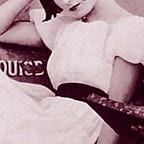Mao: Thirteen Maxims on War
The following maxims are taken from Mao Zedong’s famous “Problems of War and Strategy”, an excerpt from his concluding speech at the Sixth Plenary Session of the Sixth Central Committee of the Communist Party of China, held in 1938. Mao argued that the Party must maintain its independence and initiative in the ongoing war against Japan, above all else by possessing its own military power distinct from that of the rest of the anti-Japanese bloc. Mao’s sentiment reflects a fundamental realism and understanding of the nature of power observable throughout his life, an understanding indicative of a leader from a country at war.
Slight alterations have been made to the wording of some excerpts, as well as the addition of emphasis, for the purpose of clarity.
- The seizure of power by armed force, the settlement of the issue by war, is the central task and the highest form of revolution.
- The only war the Communist Parties in the capitalist countries should want to fight is the civil war for which they are preparing.
- Whoever has an army has power; war decides everything.
- Parties which have guns have power, and those which have more guns have more power.
- Communists do not fight for personal military power — they must in no circumstances do that — but they must fight for the military power of the Party.
- Political power grows out of the barrel of a gun.
- Our principle is that the Party commands the gun, and the gun must never be allowed to command the Party.
- Everything the Revolution possesses has been created by guns.
- All things grow out of the barrel of a gun.
- Some people ridicule us as advocates of the “omnipotence of war”. Yes, we are advocates of the omnipotence of war; that is good, not bad, it is Marxist.
- All the issues between two hostile armies depend on war for their solution.
- Only with guns can the whole world be transformed.
- We are advocates of the abolition of war, we do not want war; but war can only be abolished through war, and in order to get rid of the gun it is necessary to take up the gun.
